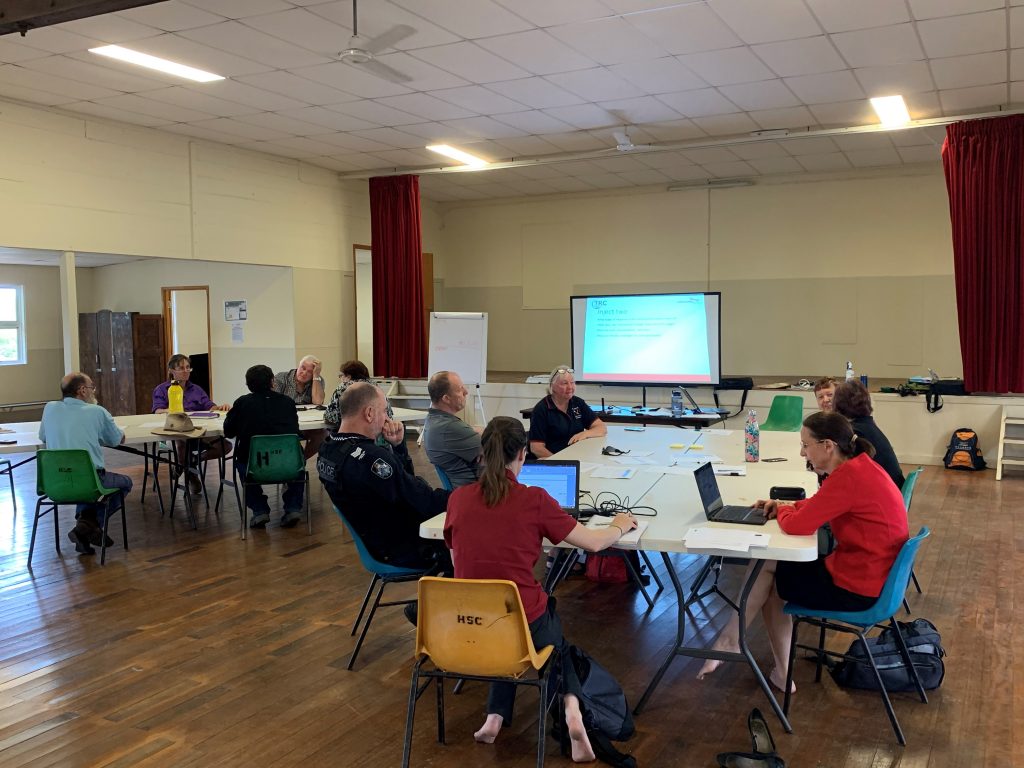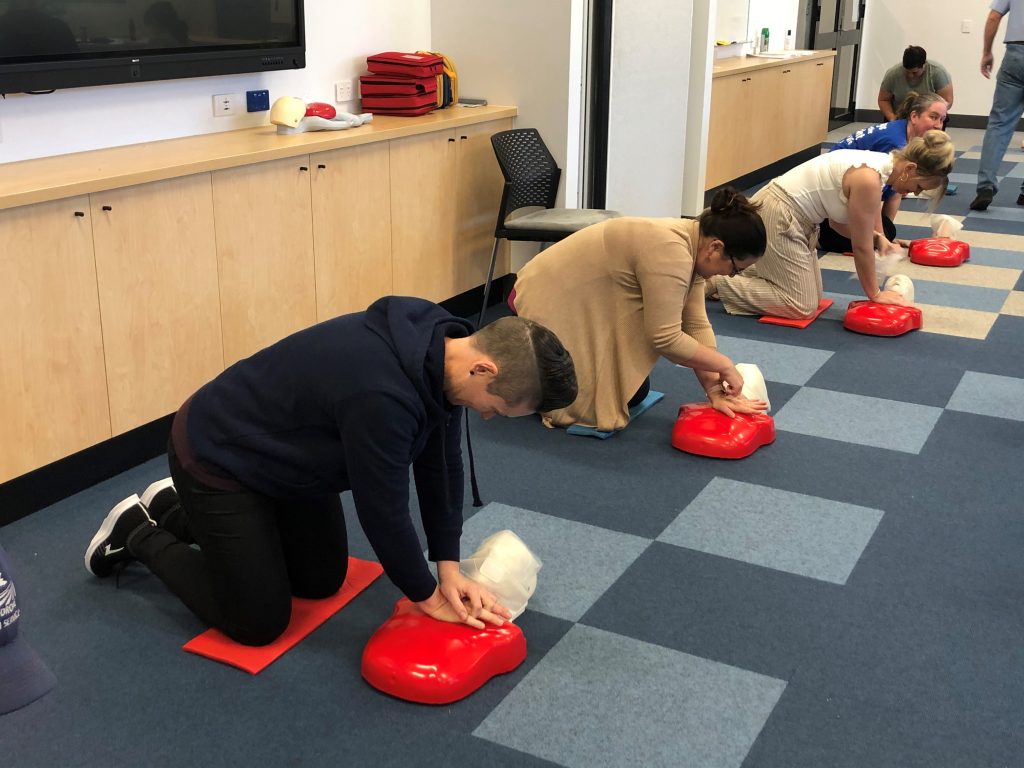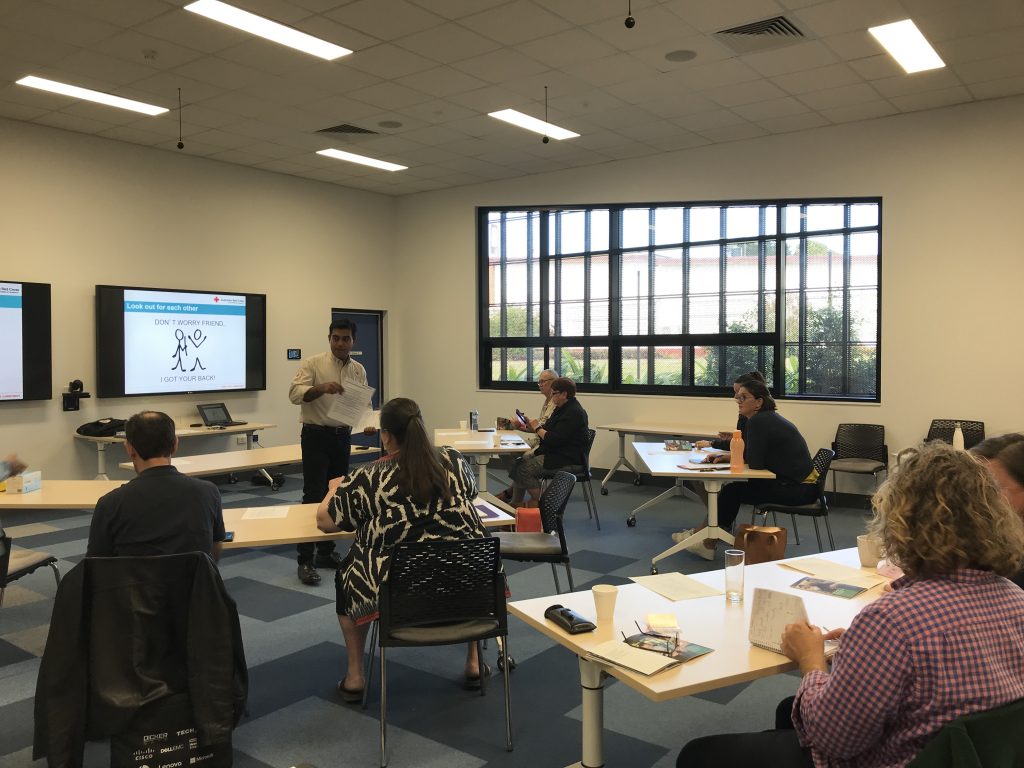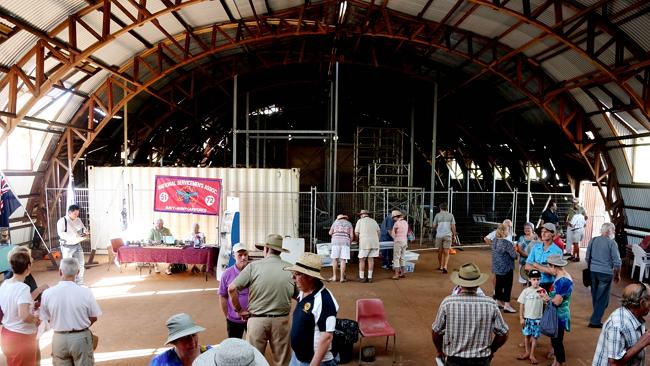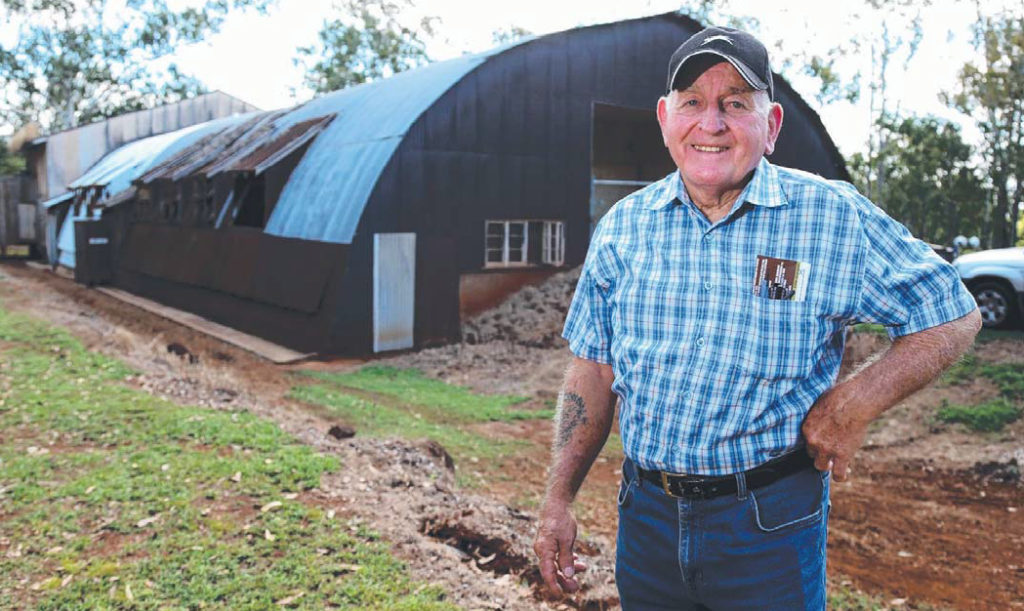Foundation for Rural & Regional Renewal (FRRR)
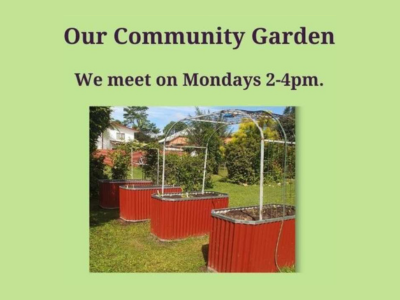
An ANZ Seeds of Renewal Grant has helped a far north Queensland community vulnerable to food insecurity establish a community garden. It’s been invaluable in educating locals on how they can grow their own food and alleviate the impacts of road closures that often follow in the wake of cyclones, affecting local food deliveries.
The project has been led by Eacham Community Help Organisation (ECHO), the Neighbourhood House for the South East Tablelands, based in Malanda in Far North Queensland. Day to day, it delivers individual and community support services, as well as in-home aged care, facilities and events, activities and workshops. The House is used by a large number of people across the community including youth, parents, First Nations groups, senior Australians, people living with disability, visiting services, and those facing hardship and crisis including homeless persons, parents and families.
One of the challenges that ECHO deals with across all these groups is food insecurity, especially following the impacts of disaster events like cyclones, which can see road transport delayed due to damaged and flooded roads, leaving local supermarkets bare of stock for days or even weeks.
So, a community garden was included in both the Malanda Masterplan and the Tablelands Regional Council Community Roadmap. As the community hub, ECHO took the lead on this project, which is yielding broad community benefits.
The focus has been growing together, learning how to propagate, harvest and prepare suitable foods at the Community Garden. By understanding which perennial plants and fruiting trees and bushes are suited to the tropics, and how to grow them, individuals and families can have an ongoing source of fresh food. Afterall, “being empowered enhances overall wellbeing.”
To support their efforts, ECHO received a $9,340 grant from the ANZ Seeds of Renewal Program in 2022. Funding went toward the garden design, plant recommendations, initial planting of fruiting trees, bushes, vines and rootstock of tropical staples and raised beds for demonstration herb garden and salad garden. It also contributed to wages for a community worker to manage the project for the first six months, with assistance from volunteers and, as the demonstration garden progressed, it helped fund short workshops delivered by an experienced community worker and volunteer.
Gardeners meet every week, including a core group of four regulars, four occasional participants and 20 visitors who share knowledge or learn. Groups, including home schoolers and school students, have come for dedicated volunteering sessions too. In fact, the garden has become the venue for special events like Mental Health Week, NAIDOC day, staff events and more.
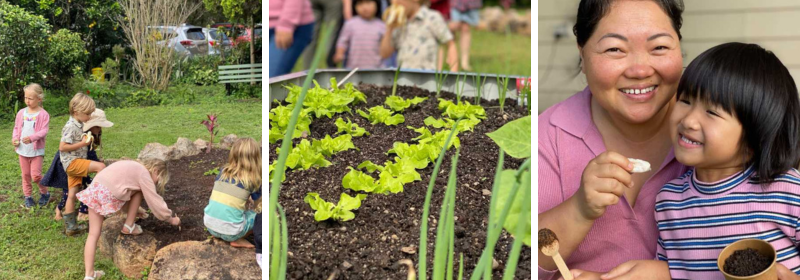
From all accounts, there have been fantastic crops of food – plenty for volunteers, visitors and emergency relief. According to Belinda Moore, Community Engagement and Development Officer, “This is a pleasant surprise and a testament to the efforts of the volunteers. Everyone is learning a lot about tropical edibles and taking cuttings away to share and grow.
“The grant helped us to launch into our Community Garden with purpose and the support of a paid worker. Without it, progress would be slow, the garden would be nowhere near as well-made and productive, and volunteers would be less supported.
“Including children in the garden is the best outcome so far – it’s exciting for the volunteers to know that ‘their’ garden is being shared to influence and inspire children. Showing people some of the tropical edibles they can easily grow from cuttings is the ongoing legacy of this garden and meets the intention of building a resilient and thriving community.”
Since 2006, the Tablelands community in Far North Queensland has experienced three cyclones, floods in 2015, bushfires in 2018 and higher than average monsoonal rains – and the impacts of climate change will likely increase the frequency, duration and severity of these weather patterns and natural disasters over time. With such a small population, this community must be largely self-reliant when it comes to initial disaster responses. So, they need to ensure they are ready when the next disaster strikes.
Thanks to the support of a private donor, the Tablelands Regional Council was awarded a $25,000 grant through FRRR’s Strengthening Rural Communities (SRC) program to run a series of free workshops across the shire. Presented in partnership with Queensland Fire and Emergency Services, these programs were designed to better prepare residents before and during disasters and build resilience for the recovery process.
Seven different workshops were delivered, including First Aid training, Psychological First Aid training, Leadership in Disasters Workshops, Exercise Ready2Respond and Queensland Disaster Management Arrangements (QDMA) training. The workshops aimed to support inclusive and resilient communities, build community capacity and cultivate integrated health and wellbeing. They also helped prepare the community for the impacts of climate change, including more intense weather events in future years.
The funding made it possible for 270 people across the region to participate in the training. In particular, the realistic, scenario-based Community Disaster Team exercise helped the community prepare for the upcoming disaster season. The workshops provided valuable ideas to help families, homes and businesses recover from adversity and many community members provided positive feedback.
Officer in Charge of the Atherton Queensland Ambulance Service, Terry Cumming, felt the training had not only better informed the Atherton community but also alleviated the pressures on Emergency Services during a disaster.
“The effort of getting our community involved in training, and capacity building can only strengthen community resilience and help all emergency services in times of need.”
The provision of a fundraising account was just the boost the Atherton Rotary Club needed to give a historic military igloo built in the 1940s as part of the war in the Pacific.
The town of Atherton in the Tablelands Region, Far North Queensland and its surrounds were key in Australia’s World War II effort, the location of a major war cemetery, general hospitals, military camps and ordinance depots. Around 100,000 military personnel were stationed in the region at the height of the war in the Pacific between 1943 and 1945 as the Japanese threatened to invade Australia.
The igloo, built in 1943, provided an essential space for social activities hosting entertainment events for thousands of patients and staff from the neighbouring Rocky Creek Hospital. Six of the structures were built originally with the one in Atherton the last still standing.
Falling into disrepair, the Atherton Rotary Club drove a fundraising campaign, using the FRRR fundraising account and a $20,000 grant from the Culture, Arts, Tourism and Community Heritage(CATCH) grants program to restore the facility and create a military museum.
Getting the igloo to lock-up has been a major undertaking, with the funds contributing to dressing rooms for the theatre stage, lighting, emergency exits, major floor repairs including restumping, and a stainless-steel kitchen for the use of hirers in the future.
Jo Barnes from the Atherton Rotary Club said that the igloo’s revitalisation was a “great relief to Rotarians involved in what at first appeared to be a huge, maybe impossible, undertaking,” she said.
“The builders are proud of their achievement in bringing it together and having the opportunity to work on a building with so much local and Australian significance.” “Visitors are intrigued, excited and challenged to remember what their past relatives have said to them about being at Rocky Creek during the war.”

